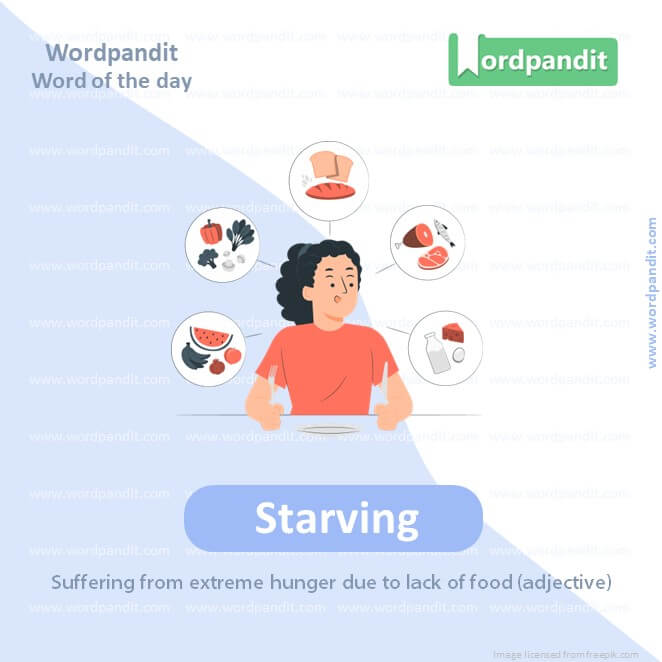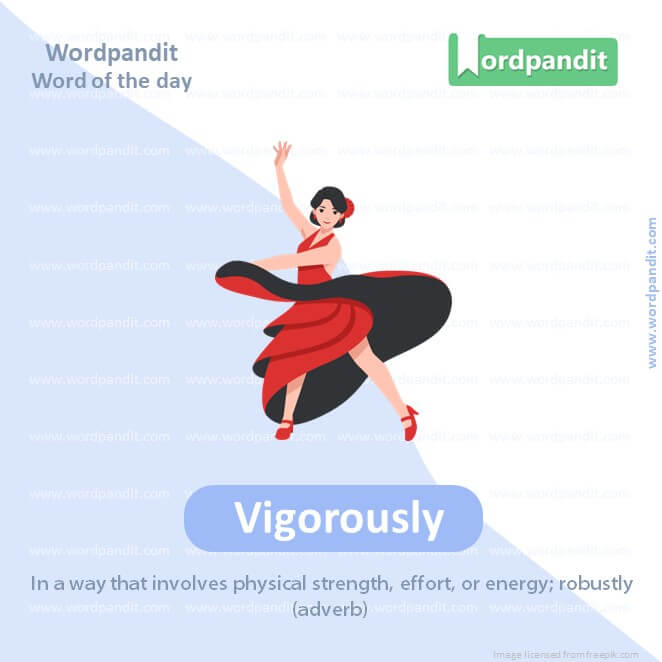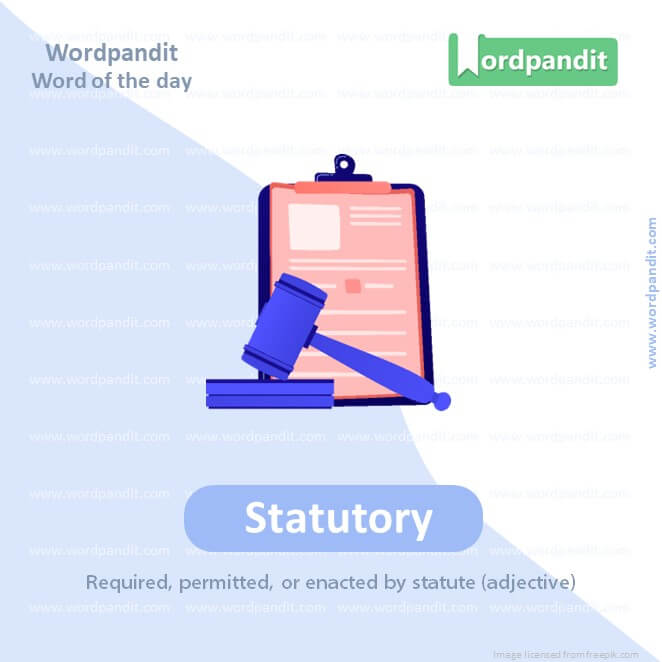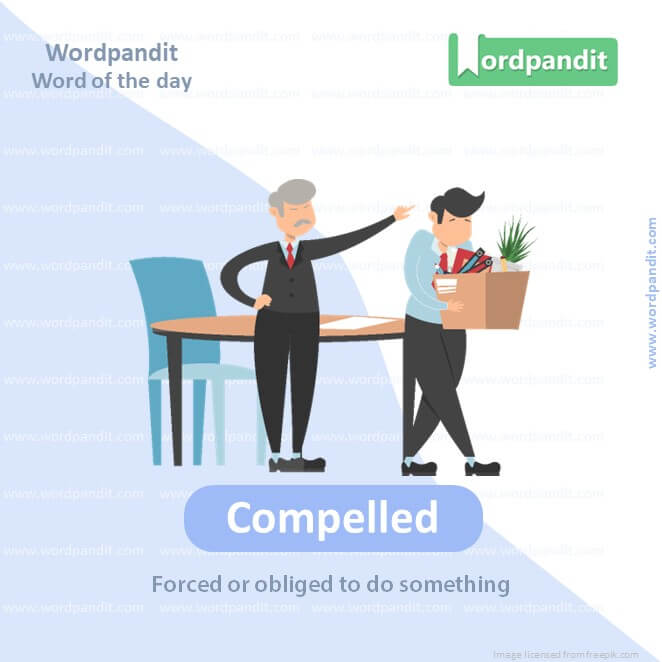Daily Vocabulary Words: List of Daily Used Words in Leading International Newspapers
Hi there. Welcome to this special section @ Wordpandit.
Our endeavour here is very simple: to highlight important daily vocabulary words, which you would come across in leading newspapers in the country. We have included the following newspapers in our selection:
• The New York Times
• The Washington Post
• Scientific American
• BBC
• The Guardian
• Psychology Today
• Wall Street Journal
• The Economist
We are putting in extensive work for developing your vocabulary. All you have got to do is be regular with this section and check out this post on a daily basis. This is your repository of words that are commonly used and essentially, we are posting a list of daily used words. Hence, this has significant practical application as it teaches you words that are used commonly in leading publications mentioned above.
Visit the website daily to learn words from leading international newspapers.

WORD-1: Collateral
CONTEXT: They are not generic aid workers or collateral damage in war.
SOURCE: New York Times
EXPLANATORY PARAGRAPH: When we use something valuable as a guarantee for a loan or to make sure something else happens, it’s called collateral. It’s like when you give your favorite toy to a friend as a promise that they will return it when they’re done playing with it.
MEANING: Something pledged as security for repayment of a loan, often valuable assets like property or investments (noun).
PRONUNCIATION: kuh-LAT-er-uhl
SYNONYMS: Security, guarantee, pledge, assurance, bond
USAGE EXAMPLES:
1. He used his car as collateral to secure a bank loan.
2. The company offered stocks and bonds as collateral for the investment.
3. She put up her jewelry as collateral for the mortgage.
4. The lender requires collateral before approving the loan.

WORD-2: Starving
CONTEXT: You cannot win this war by starving an entire population.
SOURCE: New York Times
EXPLANATORY PARAGRAPH: When we are extremely hungry and haven’t eaten for a long time, we are starving. It’s like when you miss your lunch and dinner, and your stomach feels empty and growls loudly.
MEANING: Suffering from extreme hunger due to lack of food (adjective).
PRONUNCIATION: STAR-ving
SYNONYMS: Famished, hungry, ravenous, starving, deprived
USAGE EXAMPLES:
1. After the long hike, they were all starving and eagerly ate dinner.
2. The refugees arrived at the camp starving and exhausted.
3. She skipped breakfast and lunch, so she was starving by dinnertime.
4. The stranded hikers were found starving but alive.
WORD-3: Apologists
CONTEXT: the Trump alarmists have mostly been right and the apologists have mostly been wrong.
SOURCE: New York Times
EXPLANATORY PARAGRAPH: Apologists are people who defend or justify something, especially beliefs or actions, even if they are controversial or criticized by others. It’s like when you try to explain why your favorite book is great, even if some people don’t like it.
MEANING: People who defend or justify something, especially beliefs or actions, often in a controversial or criticized context (noun).
PRONUNCIATION: uh-PAWL-uh-jists
SYNONYMS: Defenders, advocates, supporters, champions, justifiers
USAGE EXAMPLES:
1. The company’s apologists defended its controversial decision in the media.
2. She is known as one of the biggest apologists for environmental conservation.
3. Political apologists argued for the policies despite public opposition.
4. The author’s fans act as apologists for his unconventional writing style.
WORD-4: Regretting
CONTEXT: If he wins, will they end up regretting their choice? My guess is they will — but by then, it’ll be too late.
SOURCE: New York Times
EXPLANATORY PARAGRAPH: When we feel sorry or sad about something we did or didn’t do, especially if it caused problems or hurt someone, we are regretting it. It’s like when you wish you had studied more for a test after getting a low grade.
MEANING: Feeling sorrow or remorse for something done or not done, especially if it had negative consequences (verb).
PRONUNCIATION: ri-GRET-ing
SYNONYMS: Repenting, sorrowing, lamenting, apologizing, feeling sorry
USAGE EXAMPLES:
1. She was regretting her decision to quit her job without a backup plan.
2. He regretted not spending more time with his family when he had the chance.
3. The company regretted the delay in delivering the products to customers.
4. They were regretting their argument after realizing how much it hurt their friendship.

WORD-5: Vigorously
CONTEXT: the Supreme Court justices Sonia Sotomayor and Amy Coney Barrett spoke together publicly about how members of the court speak civilly to one another while disagreeing, sometimes vigorously, about the law.
SOURCE: New York Times
EXPLANATORY PARAGRAPH: When we do something with a lot of energy, strength, and determination, we do it vigorously. It’s like when you run in a race as fast as you can, putting all your effort into winning.
MEANING: In a way that involves physical strength, effort, or energy; robustly
(adverb)
PRONUNCIATION: VI-guh-ruhs-lee
SYNONYMS: Energetically, forcefully, vigorously, strongly, powerfully
USAGE EXAMPLES:
1. She vigorously defended her thesis during the presentation.
2. The protesters marched vigorously for their rights.
3. He vigorously trained for the upcoming marathon.
4. The team worked vigorously to meet the project deadline.

WORD-6: Statutory
CONTEXT: we did not share basic views about how to interpret difficult statutory and constitutional phrases, we were friends.
SOURCE: New York Times
EXPLANATORY PARAGRAPH: Statutory refers to something that is based on laws or statutes, especially related to regulations or requirements. It’s like when you have to follow the rules at school because they are set by the school board.
MEANING: Required, permitted, or enacted by statute (adjective)
PRONUNCIATION: STACH-uh-tor-ee
SYNONYMS: Legal, lawful, regulatory, required, obligatory
USAGE EXAMPLES:
1. The company complied with all statutory regulations for workplace safety.
2. It is a statutory requirement to wear a seatbelt while driving.
3. The statutory age for voting is 18 in most countries.
4. The new policy is in line with statutory guidelines for environmental protection.
WORD-7: Seniority
CONTEXT: At conferences when we discussed cases privately, we proceeded in order of seniority, and no one would speak twice until everyone had spoken once.
SOURCE: New York Times
EXPLANATORY PARAGRAPH: Seniority refers to the fact of being older or having served longer in a particular role or organization. It’s like when you respect your elders because they have more experience and wisdom.
MEANING: The state of being older or having served longer, especially in a job or organization, often granting privileges or benefits (noun).
PRONUNCIATION: seen-YOR-i-tee
SYNONYMS: Precedence, senior status, tenure, experience, rank
USAGE EXAMPLES:
1. She was promoted based on her seniority and years of service.
2. Seniority often determines who gets to choose vacation days first.
3. The board considered seniority when making decisions about layoffs.
4. In some cultures, seniority is highly valued in family and community matters.
WORD-8: Unanimous
CONTEXT: I once told him while we were having coffee, after having recently nearly lost a majority on what we thought initially would be a unanimous opinion, “I have discovered how to get five people on a single opinion.” “How?” he asked. “Start with nine,” I replied.
SOURCE: New York Times
EXPLANATORY PARAGRAPH: When everyone in a group agrees on something, without anyone disagreeing or having a different opinion, it’s called unanimous. It’s like when all your friends want to play the same game, so there’s no argument about which game to choose.
MEANING: Being in complete agreement or unity, without any dissenting voices (adjective).
PRONUNCIATION: yoo-NAN-uh-muhs
SYNONYMS: In agreement, united, undivided, harmonious, consentient
USAGE EXAMPLES:
1. The jury reached a unanimous decision on the verdict.
2. The committee members were unanimous in their support for the proposal.
3. The team was unanimous in choosing the new project manager.
4. There was unanimous applause for the performance at the concert.
WORD-9: Demonic
CONTEXT: I am compelled to confront this ugly possibility by the fact that from time to time my electronic devices seem to fall under demonic possession.
SOURCE: New York Times
EXPLANATORY PARAGRAPH: Demonic refers to something that is evil, devilish, or related to demons in mythology or folklore. It’s like when you hear a scary story about monsters or ghosts that are supposed to be evil.
MEANING: Relating to demons or resembling characteristics attributed to demons, evil or devilish (adjective).
PRONUNCIATION: di-MON-ik
SYNONYMS: Devilish, evil, diabolical, satanic, infernal
USAGE EXAMPLES:
1. The book’s antagonist had a demonic appearance and sinister motives.
2. She described her nightmares as filled with demonic creatures.
3. The movie portrayed the villain as a demonic force threatening the world.
4. The haunted house was rumored to be inhabited by demonic spirits.

WORD-10: Compelled
CONTEXT: I am compelled to confront this ugly possibility by the fact that from time to time my electronic devices seem to fall under demonic possession.
SOURCE: New York Times
EXPLANATORY PARAGRAPH: When we feel strongly compelled or forced to do something, often because of external pressure, responsibility, or personal conviction, we are compelled. It’s like when you feel a strong sense of duty to help a friend in need.
MEANING: Forced or obliged to do something
PRONUNCIATION: kuhM-PELD
SYNONYMS: Forced, obligated, impelled, urged, driven
USAGE EXAMPLES:
1. She felt compelled to speak out against injustice.
2. He was compelled by his conscience to confess his mistake.
3. The circumstances compelled her to take on additional responsibilities.
4. They were compelled to evacuate due to the approaching storm.
Vocabulary List English
In the vibrant marketplace of language learning, a ‘vocabulary list English’ is akin to a beautifully stocked grocery list – a tool that equips learners with basic ingredients necessary for fluent communication. However, absorbing the ‘vocabulary list English’ proficiently requires more than mere memorization; it calls for an informed and strategic method of learning.
The initial step towards mastering ‘vocabulary list English’ involves adopting an interactive approach. Instead of just reading and revising, use flashcards or digital memory tools to make the process more engaging. Such modes of learning not only retain interest but also boost retention and comprehension.
When learning ‘vocabulary list English’, practice is a fundamental element. Use these words in routine conversations, emails, or social media posts. The more frequently you use the words, the swiftly their usage becomes second nature.
A crucial part of understanding ‘vocabulary list English’ lies in knowing the context. Simply knowing a word’s meaning isn’t enough; you must know how it’s used in different situations. Reading a variety of materials, from fiction and newspapers to blogs and digital content, offers insight into the practical application of these words, deepening your understanding.
Furthermore, it’s vital to frequently revise ‘vocabulary list English’. Call back to what you’ve learned and give it another run-through. This habit strengthens memory retention and enhances the likelihood of the words being accessible when needed.
In conclusion, mastering ‘vocabulary list English’ is achieved through a blend of engaging tools, active practice, contextual understanding, and regular revision. These strategies, combined, can make the task of mastering ‘vocabulary list English’ a less overwhelming and more rewarding journey. As you venture into this process, you grow and expand your English vocabulary, achieving a heightened level of fluency and confidence in your English communication abilities.







